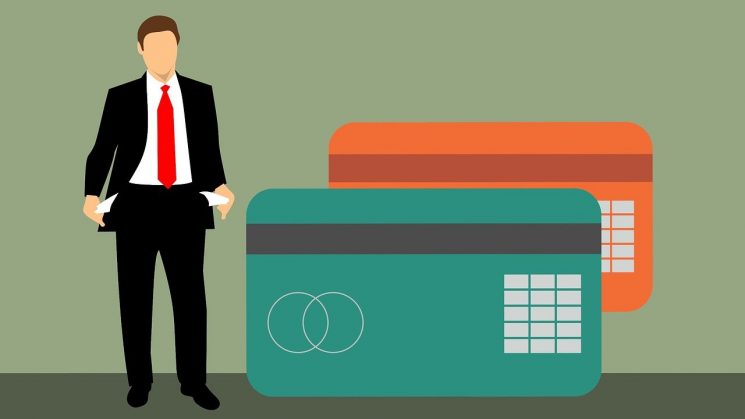Many times in business, companies will need to borrow and they will also provide credit. Suppliers will extend a line of credit to their customers, who in turn will do the same to theirs. Problems can arise when too much debt builds up and the debtor is unable to pay.
During 2020, it became clear to many businesses just how important cash flow was, and how dangerous it was to allow so much credit. Almost 25% of UK businesses either closed down or temporarily stopped trading during last year, due to the pandemic.
Many industries suffered, and are still struggling to recover from the financial impact of the lockdowns and lost trade. Many businesses will never recover, and for some, it will be because they couldn’t recover the money they were owed.
Why do businesses extend credit?
For many businesses, cash flow can be a problem at times. A company may be successful on paper but have few liquid assets. Businesses extend credit to allow customers to make purchases that don’t depend on their current liquid assets or available funds.
This means that a business can purchase goods they need from their supplier, sell these on for a profit, and then pay the supplier once the invoice due date is reached.
This leads to a couple of extra benefits for the business giving credit:
Businesses gain customer loyalty
By allowing a customer to purchase goods and pay for them later, the business is showing that they trust them. This creates loyalty as the customer is far more likely to return. It also allows customers to increase their own sales and build profit, making them more successful, which can lead to more purchases from the seller.
It helps with turnover
By allowing credit, a business can increase its own sales. By making it easier for customers to make purchases, they are likely to make bigger orders.
How does a business set up credit?
Businesses might need to know how to obtain money fast during an emergency sometimes. In this case, they would head to their bank and look for a larger overdraft, a bridging loan, or some other form of financing. When it comes to businesses extending credit to another company, it is similar but different.
Once one business makes a sale to another, they will issue an invoice. The terms on an invoice can be anything that is agreed upon by the seller and buyer. Payment terms might be 14, 30, 60, or 90 days, depending on the seller’s wishes. Normally, an invoice should be paid in 30 days or less.
Before credit is given to a customer, it would be normal for the seller to perform some form of credit check. Smart software can help in this regard by showing up-to-date information about a business’s debtors.
Businesses may also extend credit based on their trading knowledge of the customer. If a buyer has a long history of paying on time and in full, then the seller is more likely to trust them with bigger orders, and more credit.
What are the consequences of giving away too much credit?
When invoices aren’t paid on time, it has the immediate effect of reducing cash flow. All businesses have bills to pay, and if cash doesn’t flow in, there may be nothing to pay out with.
This is basic maths. Businesses that have no money coming in will eventually find out what happens when a company receives a winding up order. Before then though, there are many other consequences to giving out too much credit.
Killing with kindness
It is important to keep an eye on a customer’s credit rating so that they don’t build up more debt than they can handle. A business may feel that their long-standing relationship means that they should extend more credit, but that might be the very thing that tips the debtor over the edge. The damage will reverberate back to the seller too.
Business relationships can get damaged
If a business lets too much debt build up, then during the process of trying to get their invoices paid, relationships can become strained. Even if all accounts receivable are recovered, the business relationship may not recover.
Courts may get involved
Sellers may end up with a credit score that is negatively affected due to court action. Buyers can apply for CCJs if they believe the customer won’t pay. A CCJ stays on a credit file for six years and could affect the customer’s business in the future.
It can lead to unemployment
Allowing too much credit or too long to pay invoices can lead to a company have to make redundancies if the situation becomes dire. Many businesses have closed because their customer’s suffered financial issues first and didn’t pay.
It can end a business
In the US, businesses can be closed for not paying sales tax for two consecutive months. In the UK, if taxes aren’t paid bailiffs will be sent to recover assets to the value of the debt owing. According to official figures, two-thirds of UK businesses were facing insolvency during September 2020. This figure shows how delicate the situation can get if there isn’t a steady cash flow in a business.
How could a business avoid this situation?
There is no guarantee that all customers will pay on time or at all. However, some systems can be put in place to improve the chances of invoices being paid.
Using credit checks can help establish the risk involved with extending credit and payment due dates. And, cash collection software can also reduce the risk of non, or late, payments.
The best collection software can speed up payments by around 30 percent, and reduce the time wasted on chasing invoices by up to 80 percent. This is because the software is largely automated and sends out regular communication including late invoice letters.
Cash collection software also lets customers pay through a payment portal online, where there are multiple options to make it easier.
Is there any other way to help a customer pay?
If a business has extended too much credit, and the customer is struggling to pay, then it is in the seller’s interest to provide a way to help. Using software to set up payment plans can alleviate debt, and maintain strong business relationships.
Software suppliers such as Payt can install systems that not only make cash collection easier but make payment simple too. Payment plans can be arranged through some software, and they can be set up and managed by the system, with the customer making payments through their dashboard.
Summary
Extending credit is a great way to increase customer loyalty, build relations, and make more sales. However, when credit is extended without the risks being properly assessed, it could lead to financial disaster for both the buyer and seller.
With the pandemic continuing, and businesses still trying to recover from the financial hardships of 2020, putting in proper systems to help with accounts receivable, is more important than ever.
Having an integrated cash collection system might help get invoices paid faster, and the right software can be used to perform credit checks. This could mean a long-standing business relationship between buyer and seller, and a steady, healthy cash flow too.





